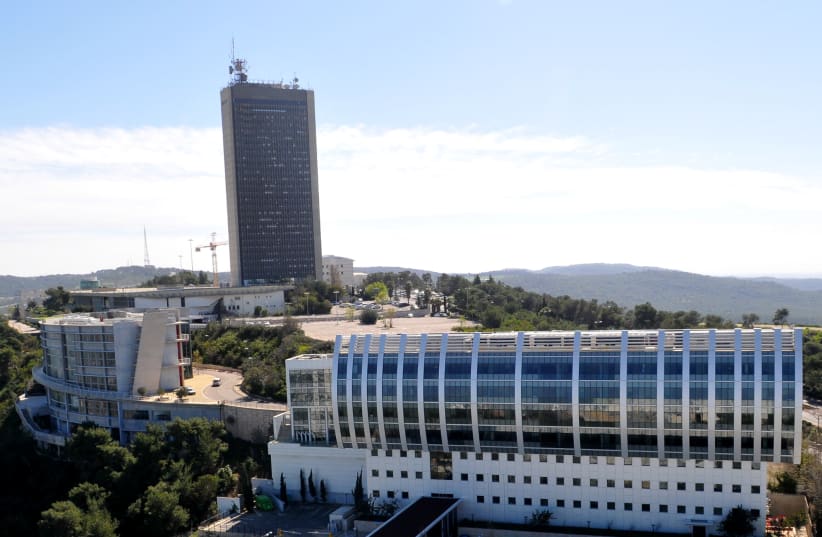ARTICLE AD BOX
The law clinic is working to help residents of the region receive social benefits from the government and provide support on issues for which the government has traditionally not intervened.
By JERUSALEM POST STAFF NOVEMBER 13, 2024 13:44 University of Haifa
(photo credit: HAIFA MUNICIPALITY SPOKESPERSON'S UNIT)
University of Haifa
(photo credit: HAIFA MUNICIPALITY SPOKESPERSON'S UNIT)
Since October 7, the staff from the University of Haifa’s Clinics for Law and Social Change have been working with residents of Israel’s northern communities, providing legal support to those who have struggled with the impacts of the Israel-Hamas War.
After the outbreak of the war, there was an initial compensation program for all citizens who evacuated from their homes and were within a 3.5km radius of the Lebanon border. Since then, a petition has been filed to the High Court of Justice by many northern communities beyond this radius to be included in this aid plan, the University of Haifa reported.
The staff from the law clinic spoke at the Knesset in hearings on behalf of these communities, advocating for them to be included in the compensation program. Since then, the government has allowed selected communities to be included due to the pressure from the petition, the University said.
Though this is a small win, many problems remain, and there are still a plethora of legal cases of affected citizens, particularly those who live 5km and beyond from the border whose lives are still at risk, stated the University of Haifa.
Approximately 68,500 Israelis from northern communities have been evacuated following Hezbollah's near-daily rocket attacks that began on October 7. These attacks have resulted in over 26 civilian deaths and 20 IDF soldier casualties.
The law clinic’s efforts began in the immediate aftermath of the October 7 attack when it set up legal aid booths at hotels across the north of Israel. There, the clinic worked with residents individually to help ensure that they received the social benefits from the government that they were entitled to.
They also supported citizens who needed to get out of their apartment lease, providing legal advice. The University of Haifasaid that the government has abstained from these predicaments, claiming this should be sorted between the landlord and tenants. Furthermore, the clinic started an initiative that requests that Sderot residents be retroactively compensated for paying rent for homes they could not live in.
Involvement in northern universities
The legal clinic also filed a petition in the High Court of Justice for students in Kiryat Shmona and Sderot who attended Tel Hai College and Sapir College. Since these students were living in college dormitories, they were not considered eligible for the government’s evacuee compensation package, as dorms are considered temporary housing, and most students cannot register their dorm address with the Ministry of the Interior.
Since then, the government told eligible students that they could receive the grants.
“This is amazing news for our clients and other students who study and live in Kiryat Shmona and Sderot (in Tel Hai and Sapir colleges) and who were evacuated after October 7 but who were found ineligible for the compensation that other residents of these towns were. The state’s update to the court also implies that there will be additional exceptions so this case will likely solve problems for additional people who were found ineligible for all kinds of reasons,” Dr. Tammy Harel Ben Shahar, a senior lecturer at the University of Haifa’s Faculty of Law and the Academic Director of the Clinics for Law and Social Change, explained.
Stay updated with the latest news!
Subscribe to The Jerusalem Post Newsletter
The clinic also worked with residents in the north who experienced complications with their once-routine commute to work. Many work for companies located in areas that were not evacuated since the government has deemed that only people who live within 3.5 kilometers of the North are granted evacuee status. With many evacuees sent to hotels across the country, some suddenly faced a long commute to work, the University of Haifa reported.
“While these small individual cases resolved themselves over the course of this past year, larger issues remain,” Ben Shahar cautioned.
“Thousands of Israelis live beyond 3.5 kilometers from the border yet are in very dangerous locations. They’re not included in the compensation plan, and many evacuated themselves,” she said, citing the northern village of Majdal Shams, where 12 Druze children were recently killed in a Hezbollah rocket, as an example of such a scenario.
Aid in educational and health care issues
Another issue pertains to small villages with limited access to schools and health care clinics and whose residents often commute to larger towns. With many of those larger towns evacuated, those in small remote villages are finding it even more challenging to access these basic public services. As such, the legal clinic filed a petition with the High Court of Justice on behalf of these small villages home to about 20,000 people, the University of Haifa reported.
On the educational front, the legal clinic is helping more children have access to education. With most schools in the north closed the only ones that can operate are those that can put students in bomb shelters at all times.
Space in those schools has become so limited that children from these communities would, at times, only have 12 hours of instruction per week. Additionally, the transit to these schools is extremely dangerous on the account of being in the open, the University of Haifa stated.
There is reportedly such a high demand for these cases that the clinic is looking toward opening an additional branch that exclusively addresses issues arising from the fallout of the war.
“We choose to advocate for these groups whose legal problems haven’t been sufficiently addressed,” Ben-Shahar said.

 3 months ago
212
3 months ago
212







 English (US) ·
English (US) ·